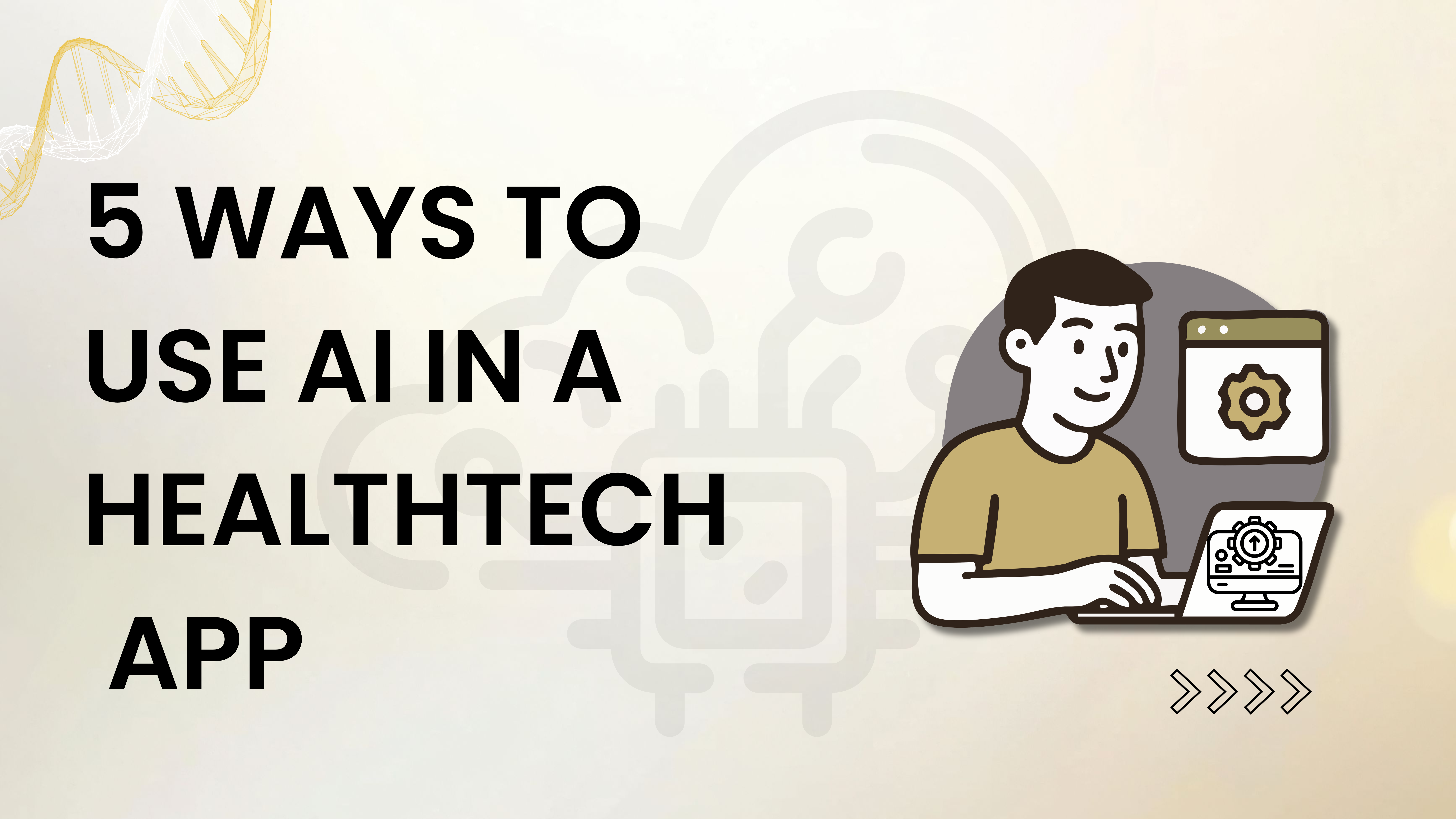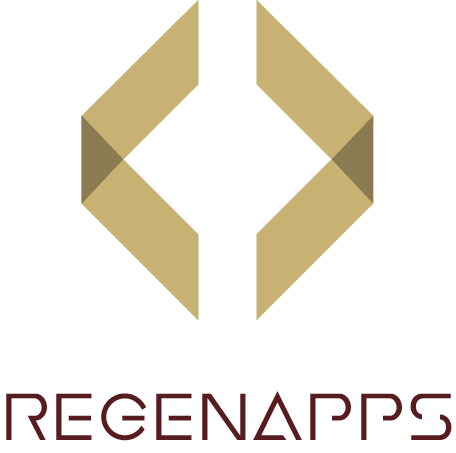
5 Ways to Use AI in a HealthTech App
The healthcare industry is going through a significant change, and Artificial Intelligence (AI) is central to this shift. AI helps doctors diagnose diseases faster and gives patients personalized wellness plans. It is making healthcare smarter, quicker, and more accessible than ever.
RegenApps, as an app and web development company, knows that adding AI to a HealthTech solution does more than make it feel modern; it adds real value. It allows healthcare providers, patients, and innovators to collaborate using intelligent, data-driven technology.
In this article, we will explore five practical ways to use AI in a HealthTech app and the real impact it can achieve.
Personalized Health Recommendations
Every person’s health journey is unique, and that’s where AI excels. By gathering and analyzing data from wearables, fitness trackers, or health logs, AI can offer personalized health recommendations that suit each user’s body type, activity level, and goals.
For example, a HealthTech app can use AI to recommend a balanced diet plan for diabetic users or suggest yoga routines to help reduce stress based on daily heart rate data. These insights go beyond general advice and make users feel understood and cared for.
Benefit: Increases user engagement and fosters a long-term relationship between the app and its users.
Predictive Health Analysis
Predictive analytics is one of the most significant ways to apply AI in healthcare. Instead of waiting for issues to arise, AI can predict health risks early by using machine learning models trained on large datasets.
A HealthTech app can examine a user’s lifestyle data — such as sleep, heart rate, calorie intake, or step count — to find anomalies or signs of possible illness. For instance, an irregular pulse trend might prompt a notification recommending that users see a doctor.
Benefit: Moves healthcare from treatment to prevention, saving time and costs while improving overall wellness.
Virtual Health Assistants and AI Chatbots
In a world where quick support is crucial, AI-powered chatbots and voice assistants serve as digital health companions. They can answer basic medical questions, provide medication reminders, track daily vitals, and even schedule doctor appointments in real time.
These AI assistants are available 24/7 and can manage large volumes of user inquiries without delay. They not only enhance the patient experience but also allow healthcare professionals to focus on more critical cases.
Benefit: Reduces reliance on in-person visits for minor issues while ensuring continuous patient support.
Medical Image Recognition and Diagnostics
AI’s ability to analyze images accurately has transformed diagnostics. HealthTech apps today can incorporate AI-powered image recognition to help doctors identify conditions like fractures, tumors, or infections.
By comparing uploaded scans with extensive medical databases, the app can highlight abnormalities and suggest next steps, sometimes within seconds. This speeds up treatment and boosts accuracy, especially in areas with limited access to specialists.
Benefit: Provides faster, data-driven diagnoses and enhances patient outcomes.
Mental Health Support with Emotion Recognition
Healthcare isn’t just about physical health; it also encompasses mental health. AI technology now allows apps to analyze voice tone, facial expressions, and text patterns to recognize emotional states like stress, anxiety, or depression.
A HealthTech app can then propose guided meditations, breathing exercises, or connect users with a therapist. This emotional intelligence fosters a sense of empathy and care that’s often missing in digital tools.
Benefit: Encourages mental wellness and adds a human touch to technology.
Additional AI Applications in HealthTech
- Remote patient monitoring for elderly or chronic patients
- AI-driven drug research to speed up clinical testing
- Fraud detection and billing automation for hospitals
- Smart wearable integrations that gather real-time health data
- Automated record management for medical institutions
Each of these AI applications provides value by improving speed, accuracy, and overall accessibility in healthcare.
Benefits of Integrating AI in HealthTech Apps
Faster Diagnosis and Treatment
AI can quickly analyze scans, reports, and health data to identify diseases or risks much faster than traditional methods.
For instance, AI-based apps can instantly detect irregular sugar levels or heart rates.
Reduced Operational Costs
AI automates routine hospital tasks like scheduling, billing, and data entry — cutting down workload and costs.
Better User Engagement
AI makes health apps more personal by studying each user’s habits and needs.
Features like customized reminders, progress tracking, and lifestyle tips keep users consistent and motivated.
More Accurate Predictions
Machine learning models in HealthTech apps can predict potential risks like sugar spikes, heart issues, or sleep problems before they happen.
This helps users take preventive steps early and stay healthier for longer.
24/7 Health Monitoring
AI ensures continuous care by tracking users’ health data in real-time.
From sleep and stress tracking to emergency alerts, users can rely on round-the-clock assistance without always visiting a doctor.
Example of AI in Action
Think about a wellness app that tracks your daily activity, sleep, and mood through your phone and smartwatch. When the AI notices a decline in physical activity and mood over several days, it gently alerts you:
“You seem to have low energy this week. Would you like to try a guided breathing session or take a short walk?”
This simple AI-driven interaction illustrates how technology can help users take small but meaningful steps toward better health, making the experience truly human-centered.
To really grasp the wider effects of AI, let’s take a look at a few more examples from the industry:
RegenApps’ Diabetes72: This tool empowers diabetic patients by providing AI-based glucose tracking, tailored recommendations, and lifestyle advice.
Buoy Health: This is an AI-driven symptom checker that assists users in self-assessing their health and connecting with professionals.
Zebra Medical Vision: They utilize deep learning to examine medical scans and spot any abnormalities.
Each of these examples highlights how AI is bridging the gap between technology and empathy, delivering genuine care through innovative digital solutions.
Conclusion
AI is not just changing healthcare; it’s redefining it. Adding artificial intelligence to a HealthTech app means creating a system that can learn, predict, and care.
From personalized recommendations to emotional support, AI helps build apps that make healthcare smarter, more responsive, and very personal.
Frequently Asked Questions:
How does AI improve healthcare apps?
AI enhances apps by analyzing data, predicting trends, automating tasks, and offering personalized experiences, which ultimately improve patient outcomes and healthcare efficiency.
Is AI in HealthTech apps safe?
Yes. When developed with strict privacy and encryption protocols, AI-powered apps can securely manage sensitive medical data while adhering to healthcare regulations.
Do AI features make apps more expensive to build?
Not necessarily. While AI adds complexity, it greatly increases the app’s long-term value and user retention, making it a wise investment.
What data does AI need to function in health apps?
AI typically requires fitness data, medical history, lifestyle inputs, or wearable device metrics to provide accurate insights and recommendations.
Can AI help healthcare startups scale faster?
Absolutely. AI automates repetitive tasks and adds predictive intelligence, allowing startups to efficiently scale their services and enhance user satisfaction.




